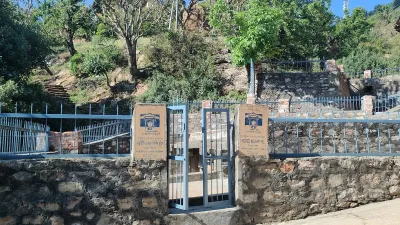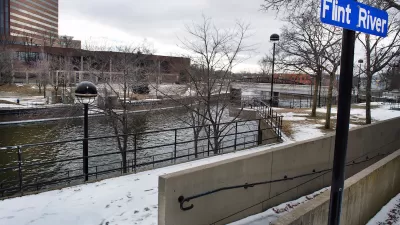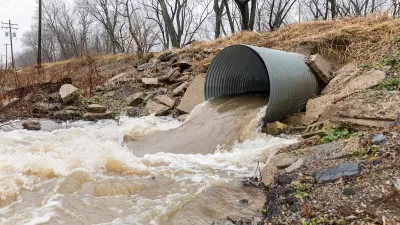In a city where urban water infrastructure ranges from "insufficient" to "nonexistent," Lagos entrepreneurs have developed a bustling trade in "sachet water." Is it time to focus more attention on regulating the sachet industry?
No one is immune from the poor state of the urban water infrastructure in Lagos, Nigeria. Those that have water connections face erratic and sometimes contaminated supply; 70 percent have no access to piped water at all. Of those with "piped" access, two-thirds access that water from community taps.
Enter the sachet industry, commercially purified packets of water sold by the polyethylene sack at 6 cents a pop. For many of Lagos' poor, it is the most affordable option for potable water. Or should we say, "mostly potable"? Recent research shows that contamination in the sachet water trade is rampant.
It's easy to say that the answer is improving traditional water infrastructure (you know: pipes). However, beyond the usual issues of cost and implementation logistics, in Lagos efforts to improve water infrastructure are met by fierce opposition from water hawkers and others who profit from the status quo. In the short term, the best solution may be to focus on those ubiquitous water sachets, not as the best solution, but as the "least-worst" solution.
Thanks to Rachel Proctor May
FULL STORY: On Clean Drinking Water in Lagos: Many Options, Few Solutions

Planetizen Federal Action Tracker
A weekly monitor of how Trump’s orders and actions are impacting planners and planning in America.

Map: Where Senate Republicans Want to Sell Your Public Lands
For public land advocates, the Senate Republicans’ proposal to sell millions of acres of public land in the West is “the biggest fight of their careers.”

Restaurant Patios Were a Pandemic Win — Why Were They so Hard to Keep?
Social distancing requirements and changes in travel patterns prompted cities to pilot new uses for street and sidewalk space. Then it got complicated.

Albuquerque Route 66 Motels Become Affordable Housing
A $4 million city fund is incentivizing developers to breathe new life into derelict midcentury motels.

DC Area County Eliminates Bus Fares
Montgomery County joins a growing trend of making transit free.

Platform Pilsner: Vancouver Transit Agency Releases... a Beer?
TransLink will receive a portion of every sale of the four-pack.
Urban Design for Planners 1: Software Tools
This six-course series explores essential urban design concepts using open source software and equips planners with the tools they need to participate fully in the urban design process.
Planning for Universal Design
Learn the tools for implementing Universal Design in planning regulations.
Heyer Gruel & Associates PA
JM Goldson LLC
Custer County Colorado
City of Camden Redevelopment Agency
City of Astoria
Transportation Research & Education Center (TREC) at Portland State University
Camden Redevelopment Agency
City of Claremont
Municipality of Princeton (NJ)





























